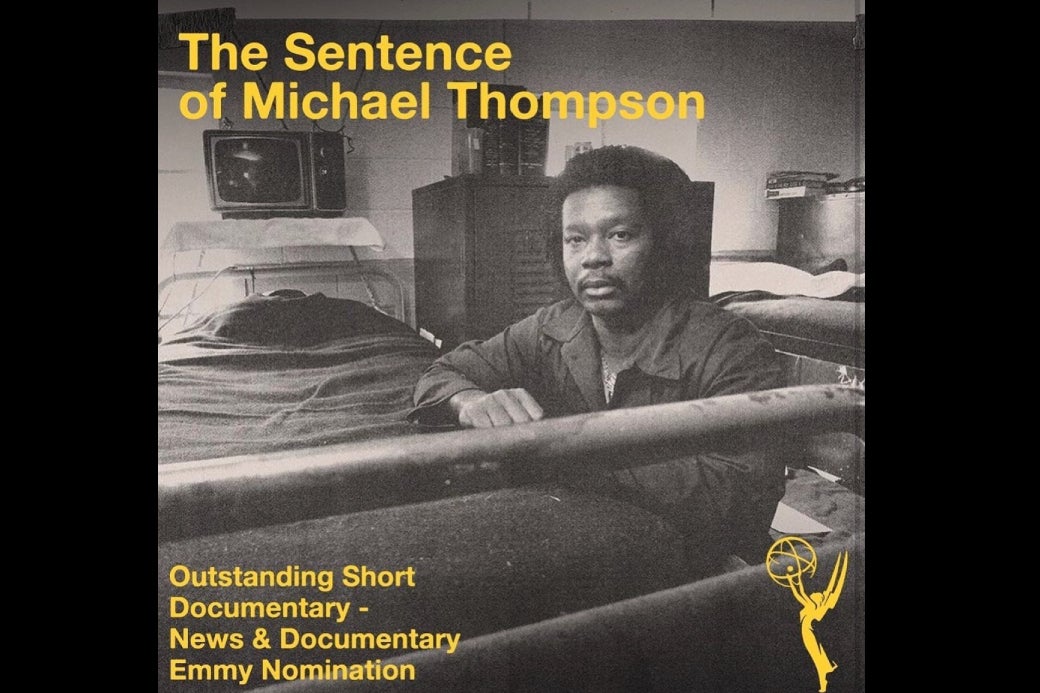
An Emmy-nominated documentary that explores harms caused by the war on drugs, The Sentence of Michael Thompson, was awarded two Clio Cannabis awards this week, including the exceptionally rare & coveted Grand Clio for Advocacy work.
The film looks at the painful story of a man who was sentenced to 42-60 years in prison for selling three pounds of marijuana and his family’s fight to help him. Thompson ended up serving the longest prison sentence for a non-violent offense in Michigan’s history. After 25 years behind bars, he has no bitterness but rather is trying to help others who are in the same situation he once was.
Thompson shared with Benzinga how he got through the hardest of times and what keeps him going as he dedicates his life to helping other marijuana prisoners.
Benzinga: Can you please introduce yourself and tell us your story?
M.T.: “My name is Michael Thompson. I am the president of the Michael Thompson Clemency Project. My story is I sold three pounds of marijuana to a friend of mine for a bachelor party and I later found out he was a police informant. As a result, I received a sentence of 42-60 years. However, what Michigan does is stack charges on you. They can stack a charge and give you 8 felonies. Well, this is what they do to people of color mostly by using charges and stacking them. In conclusion, they stacked charges on me and sentenced me to 42-60 years in which I ended up serving 25 years and I’m still serving because I’m on a 4-year parole. So basically 27 years.”
Family Is Everything
Benzinga: Your family never stopped praying and fighting for your release. How did that help you get through hard times and not lose hope?
M.T.: “Well family is everything. Without family, what do you really have? In particular, my son was my best friend. My only son. When he passed, prayer seemed like the only thing I had left.”
Benzinga: How does it feel to be free again after so many years? Do you have any resentment or just appreciate life now? Or perhaps a bit of both?
M.T.: “Well, a bit of both. For the simple reason, prison life is not easy. One thing prison does is show you who your true friends and family are. I’m thankful for that.”
Benzinga: What is the lesson you learned from this experience?
M.T.: “Who my real family and friends are. I also learned how corrupt and ugly the system is. People of authority show a very ugly side. No compassion. It’s not all but most.”
Benzinga: What would you like to advise people who are currently in a similar situation you once were?
M.T.: “To be strong because dealing with incarceration weakness will only bring you unexpected negative situations.”
Benzinga: How did you feel when you heard that Michigan legalized adult-use cannabis?
M.T.: “I felt, if that’s so, what are they gonna with me? When was someone gonna free me? So I was happy to hear about the legalization but at the same time the fear of the unknown was still lingering over my head.”
Benzinga: You’re working to help others now in similar circumstances as you once were. Can you tell us more about that?
M.T.: “I would be more than glad to elaborate on that because what I’m doing, no one in America is doing. The Michael Thompson Clemency project is trying to get guys free from trap sentences. There should be no one in prison for marijuana today. Along with the marijuana prisoners, also those who are under trap sentences such as habitual offenders and felony murder. That’s who I’m fighting for. This is America. How do you throw the key away for those that you sentenced under the terms of habitual offender and felony murder? This should be revised. It made the justice system hard on any crime. Only people in America were affected by this. They didn’t do this to any terrorists. It was put in place to take a hard stand on crime. When is enough enough?”
Benzinga: Is federal legalization the answer or just part of the solution to improve the US criminal justice system?
M.T.: “Well, I think legalization under the federal statute is very important. The federal statute is holding up a lot of good progress that can be made. So to answer your question, the federal statute needs to realize the system is broken and the only way to fix it completely is for the federal statute to get on board with the state.”
Thompson wondered why there aren’t more organizations like his, that are fighting against unjust lengthening sentencing or what he calls trap sentences.
“I ask why is there no funding available for the good work we’re doing.”
Courtesy photos
This post was originally published on this site be sure to check out more of their content.






